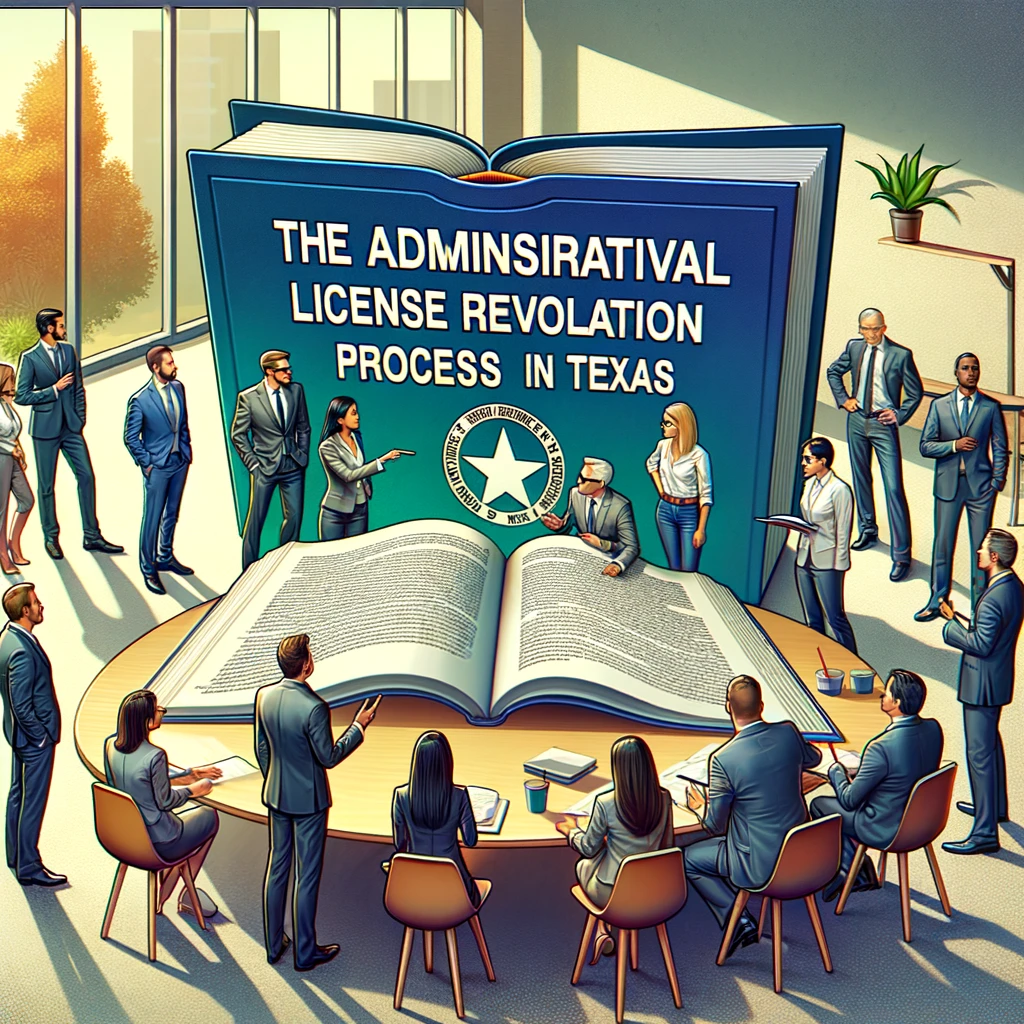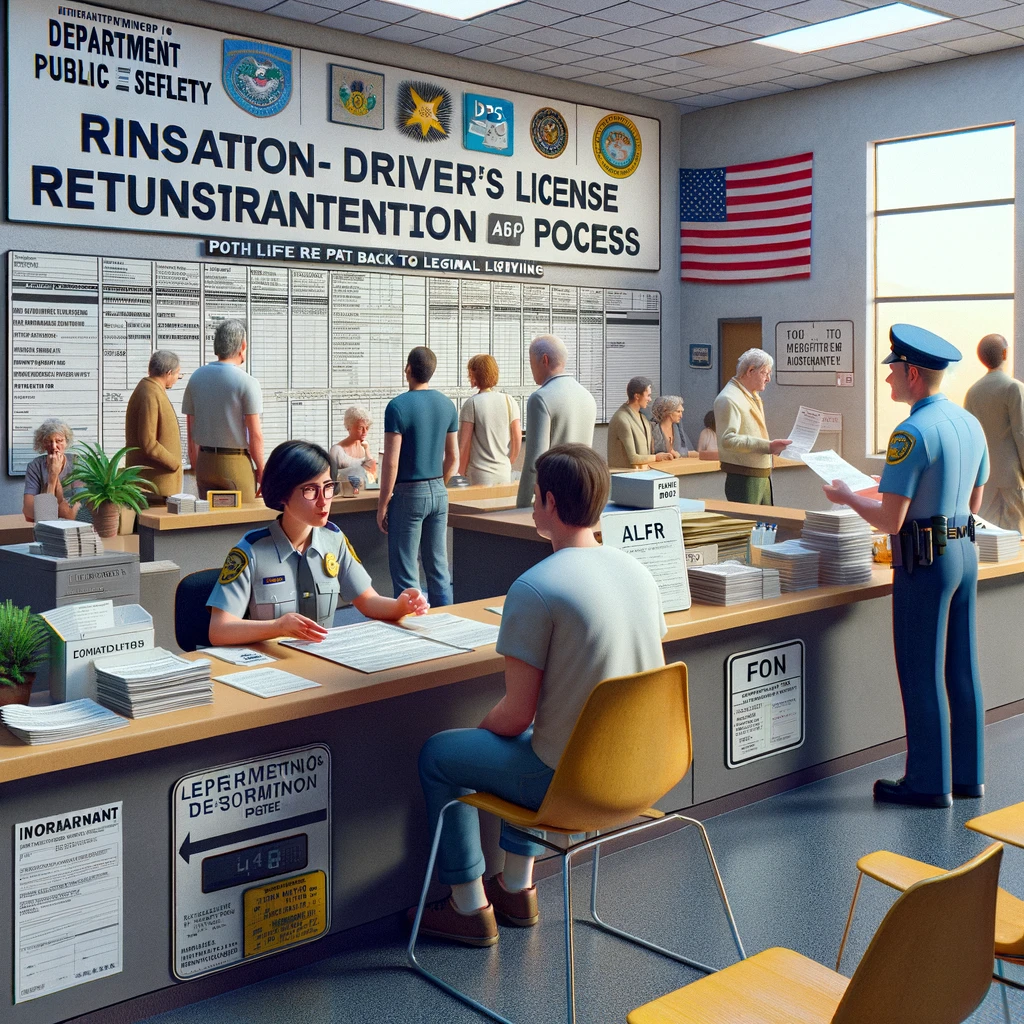
The Administrative License Revocation Process in Texas (ALR) is a critical procedure. It affects many drivers annually. Understanding this process is essential for Texas residents. Let’s delve into the intricacies of this procedure.
Navigating Texas Waters without a Paddle?
Picture this: You’re cruising down a Texas highway, wind in your hair, music blaring. Suddenly, lights flash behind you. It’s a DWI stop. Now what?
Welcome to the not-so-secret dance of the Administrative License Revocation (ALR) Process in Texas. It’s like a surprise quiz in school but with your driving privileges on the line.
Why should you keep reading?
Because knowledge is power. And in Texas, the road rules.
We’ll dive deep into the ALR process, from what to do post-DWI arrest to saving your driving privileges. Whether you’re a Texas native or just passing through, this guide is your lifesaver.
So, buckle up! We’re about to turn a daunting legal process into an adventure.
Differences Between ALR and Criminal DWI Proceedings
Many people confuse the ALR process with criminal DWI proceedings. They are distinctly different. The ALR is an administrative process. It deals with the suspension of driving privileges. In contrast, DWI proceedings address criminal charges. It’s vital to distinguish between the two. This knowledge can significantly impact one’s defense strategy.

Steps to Take Following a DWI Arrest in Texas
If you’re arrested for DWI in Texas, time is of the essence. Firstly, stay calm. Secondly, note the time of your arrest. This detail is crucial for your ALR hearing request. Next, consult with a legal professional. They can guide you through the upcoming steps. Remember, your actions post-arrest can significantly influence your case.
The Role of the Texas Department of Public Safety in ALR
The Texas Department of Public Safety (DPS) plays a significant role in the ALR process. They oversee the enforcement of this procedure. It’s the DPS that issues notice of suspension. Understanding their part can aid in navigating the ALR process effectively.

How to Request an ALR Hearing
Requesting an ALR hearing is a right that shouldn’t be ignored. You have 15 days from the notice date to request it. Filing for this hearing can temporarily halt your license suspension. It’s a critical step in fighting for your driving privileges.
| Step | Details |
| 1. Note the Time of Your Arrest | You have 15 days from the date of receiving the notice to request a hearing. |
| 2. Submit Your Request | File the request online, by mail, or fax to the Texas Department of Public Safety. |
| 3. Await Confirmation | After submission, wait for confirmation and details of your hearing. |
| 4. Prepare for the Hearing | Gather evidence, prepare your testimony, and consider hiring legal help. |
| 5. Attend the Hearing | Be punctual, present your case clearly, and respond to any questions. |
What to Expect During an ALR Hearing
An ALR hearing can be daunting. Yet, knowing what to expect can ease your nerves. The hearing is quite technical. Evidence will be reviewed. Testimonies will be heard. Preparation is key. Familiarize yourself with the proceedings. This preparation can be beneficial.
Legal Grounds for Contesting ALR in Texas
There are several legal grounds to contest an ALR suspension. These include questioning the stop’s legality or the arrest’s validity. Presenting strong legal arguments can aid in your defense. Knowledge of these grounds is crucial.
Consequences of Refusing a Breathalyzer or Blood Test
Texas has implied consent laws. Refusing a breathalyzer or blood test can lead to automatic suspension. Understanding these consequences is crucial. They can heavily impact your decision at the time of arrest.

Impact of ALR on Driving Privileges and Occupational Licenses
ALR can severely impact your driving privileges. It can affect your daily life and occupation. Understanding this impact is vital. It underscores the importance of the ALR hearing.
Temporary Driving Permits and Occupational Licenses
Despite a suspension, there is hope. You can apply for a temporary driving permit or occupational license. These permits can allow you to drive under certain conditions. Knowing how to obtain these can be a lifesaver.
Reinstating Your Driver’s License After ALR
Reinstating your license after ALR requires several steps. There are fees and potentially a DPS safety course. Understanding these requirements is essential for getting back on the road legally.

The Role of Legal Representation in the ALR Process
Navigating the ALR process can be complex. Legal representation can make a significant difference. An experienced attorney can guide you through the process. They can help improve the chances of retaining your driving privileges.
Statistical Overview of ALR in Texas
Statistics show the scope of ALR in Texas. Thousands are affected annually. These statistics highlight the importance of understanding and preparing for the ALR process.
Comparative Analysis: Texas ALR vs. Other States
Comparing Texas’s ALR process with other states reveals differences and similarities. This comparison can provide valuable insights. It can help residents understand Texas’s unique stance on DUI and DWI offenses.
Future of The Administrative License Revocation Process in Texas
The landscape of ALR laws in Texas is always evolving. Staying informed about potential changes is crucial. These changes can impact drivers across the state.

In summary
The Administrative License Revocation Process in Texas is complex. Yet, understanding this process is vital for any Texas driver. It’s more than just legal jargon. It’s about safeguarding your rights and navigating through challenging times. Stay informed. Stay prepared. Your driving future may depend on it.
Back on the Texas Road Again
So, you’ve journeyed through the maze of Texas’s ALR process with us. Feeling more like a savvy navigator?
Remember our fictional friend from the intro? Let’s call them Alex. Thanks to diving into the ins and outs of ALR, Alex turned a potential roadside nightmare into a story of triumph. Now, they’re back on the road, wiser and more prepared.
The short answer tothe Administrative License Revocation Process in Texas?
Yes, the ALR process is complex, but it’s not the end of the road.
Take it from Alex: armed with knowledge and a dash of Texas grit, you can navigate any legal storm. So keep this guide handy, and drive safe, y’all!
Remember
In the land of the free and the home of the brisket, knowledge is your best companion. So drive smart, stay informed, and let’s keep Texas highways friendly, one informed driver at a time.

Other Related Articles:
- Impact Of a DUI On Professional Licenses
- How Do I Get My License Back If I Owe Child Support?
- Back to the Basics: Don’t Drink & Drive!
- Hidden Consequences of a Class C Conviction in Texas
- Punishment Range for Crimes in Texas?
- Texas’s Zero Tolerance Laws for Underage Drinking and Driving
- The Impact of Traffic Violations on Your Driving Record
- Driving with Care: Roadway Responsibilities
- DUI and DWI: The Alcohol Marijuana Dilemma
- Alcohol Laws and Regulations in Texas
Frequently Asked Questions:
The length of license revocation in Texas can vary based on the offense. Typically, it ranges from 90 days to two years.
Administrative suspension occurs when you fail or refuse a blood alcohol test and is managed by the Texas DPS independently of criminal court cases.
Your license can be suspended in Texas for reasons including DWI, accumulating too many driving points, not paying traffic fines, or failing to appear in court.
In Texas, any drug conviction leads to an automatic license suspension of 180 days.

